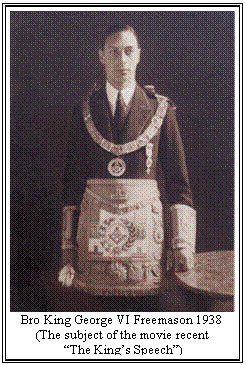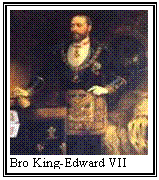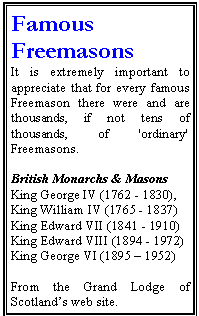“The world today requires spiritual and moral regeneration. I have no doubt, after many years as a member of our Order, that Freemasonry can play a part in this vital need”.
The above was written by HM King George VI on 5 November 1951 in a letter to MW Bro Rt Hon the Earl of Scarbrough. His Majesty had promised to install Lord Scarbrough as Grand Master on 6 November, but was prevented from doing so by what proved to be his final illness. It echoes similar statements he had made on a number of occasions when he attended Grand Lodge as both King and a Past Grand Master. He was in no doubt that Freemasonry was a force for good and had a vital part to play in the life of his country and empire.
Born in 1895 as the second son of King George V and Queen Mary (then Duke and Duchess of York), he seemed destined for a supporting role in Royal and national life. Like many previous younger sons he looked towards a service life and joined the Royal Navy.
When the First World War broke out, unlike his older brother the Prince of Wales, he was allowed to go on active service and saw action at the Battle of Jutland.
Invalided out because of a duodenal ulcer, once that was operated on he determined to get back into uniform and transferred to the Naval Air Service, which was soon to be combined with the Royal Flying Corps to form the Royal Air Force. Although he qualified as a pilot, the King would not allow him to go on raids but he continued on active service until the end of the War.
His great-uncle, HRH The Duke of Connaught, was Grand Master 1901-1939, his Grandfather, King Edward VII, had been Grand Master 1874-1901 and in 1919 his brother, the Prince of Wales, was initiated in the Household Brigade Lodge No. 2614.
As a Lieutenant in the Royal Navy, Prince Albert sought admission in the Navy Lodge No. 2612, of which his Grandfather had been the founding Master. He was initiated by the Pro Grand Master, Lord Ampthill, in the absence of the Grand Master on 2 December 1919. In response to the toast to the initiate the Prince said: The event was widely reported in the press, as were his subsequent Masonic activities. He became Master of Navy Lodge in 1921 and, following a precedent set by his ancestor King George IV, was to be its permanent Master until he ascended the throne. A shy man with a pronounced stammer, it was remarked by those present that his stammer rarely surfaced when he was involved in ritual. In a personal letter to the secretary of the Navy Lodge, on 2 November 1920, he wrote:
Reproduced from http://www.mqmagazine.co.uk/issue-14/p-07.php UPDATE I was just reading some material, and I see Lionel George Logue, the speech therapist who assisted George VI was a Freemason. Was this a factor in their relationship ? Perhaps it was... I read this on the Australian Dictionary of Biography by Suzanne Edgar, 'Logue, Lionel George (1880–1953)', Australian Dictionary of Biography, National Centre ofpublished first in hardcopy 2000, accessed online 18 March 2015. |
|
|



